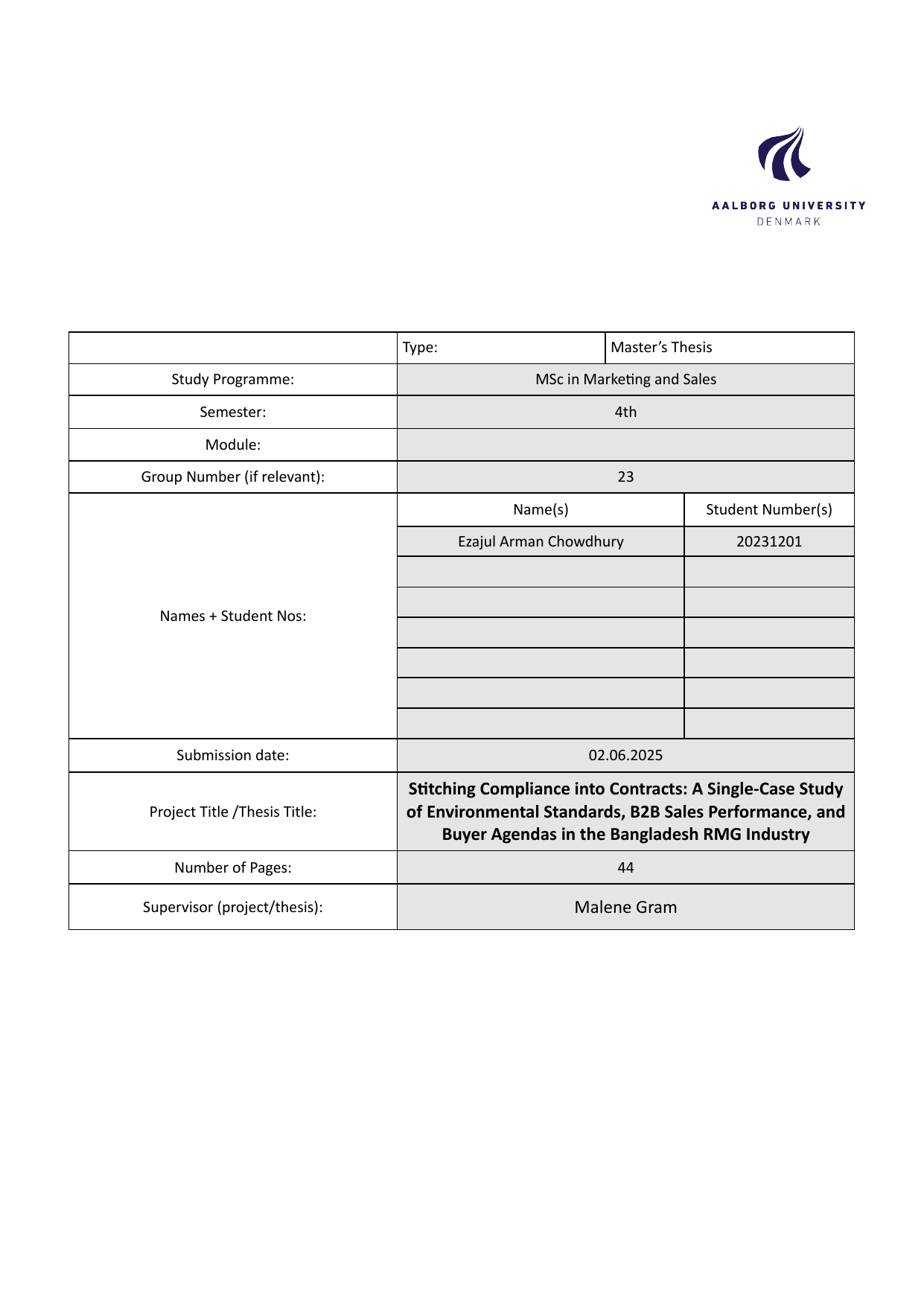
Stitching Compliance into Contracts: A Single-Case Study of Environmental Standards, B2B Sales Performance, and Buyer Agendas in the Bangladesh RMG Industry
Author
Term
4. Semester
Publication year
2025
Submitted on
2025-06-02
Pages
44
Abstract
In response to the growing emphasis on sustainability within global supply chains, this thesis investigates the implications of environmental compliance for sales strategy, negotiation processes, and buyer behavior in Bangladesh's Ready-Made Garment (RMG) sector. Despite the proliferation of environmental standards and buyer mandates, limited research has explored how these compliance demands influence supplier-side commercial practices, particularly in underrepresented contexts such as Bangladesh. This qualitative study adopts a single-case design, focusing on a compliant Bangladeshi garment supplier engaged with international buyers. Primary data was collected through semi-structured interviews with a Sales and Compliance Manager and analyzed using thematic analysis (Braun & Clarke, 2006). The findings reveal that while environmental compliance strengthens supplier credibility and facilitates access to high-value markets, it does not necessarily translate into price premiums. Instead, compliance often becomes an entry-level requirement, with its marketing potential constrained by buyer perceptions, negotiation asymmetries, and cultural misalignments (Islam et al., 2023; Chowdhury & Quaddus, 2021). Moreover, the study highlights the increasing institutional complexity suppliers face—where compliance is decoupled from commercial gain, leading to symbolic conformity rather than substantive marketing leverage (DiMaggio & Powell, 1983; Testa et al., 2018). Despite these challenges, strategic compliance has the potential to influence long-term buyer relationships and enhance brand trust if communicated effectively within cross-cultural frameworks (He et al., 2023). This thesis contributes to the literature by bridging marketing and compliance discourses, offering practical insights for suppliers seeking to align sustainability efforts with competitive sales strategies. It concludes with recommendations for future research on cross-sectoral comparisons, longitudinal performance metrics, and the role of digital traceability in compliance-driven marketing.
Documents
